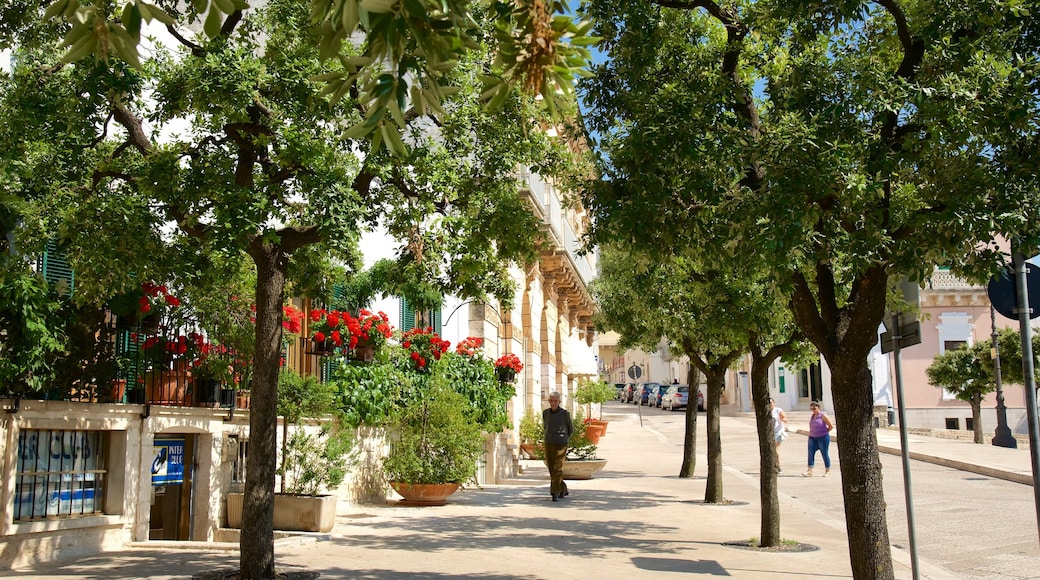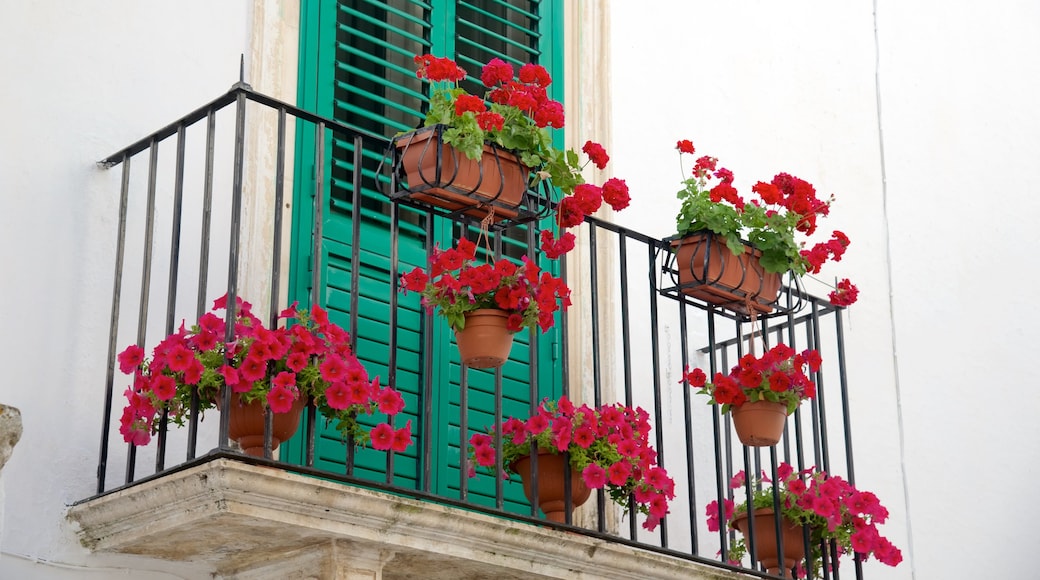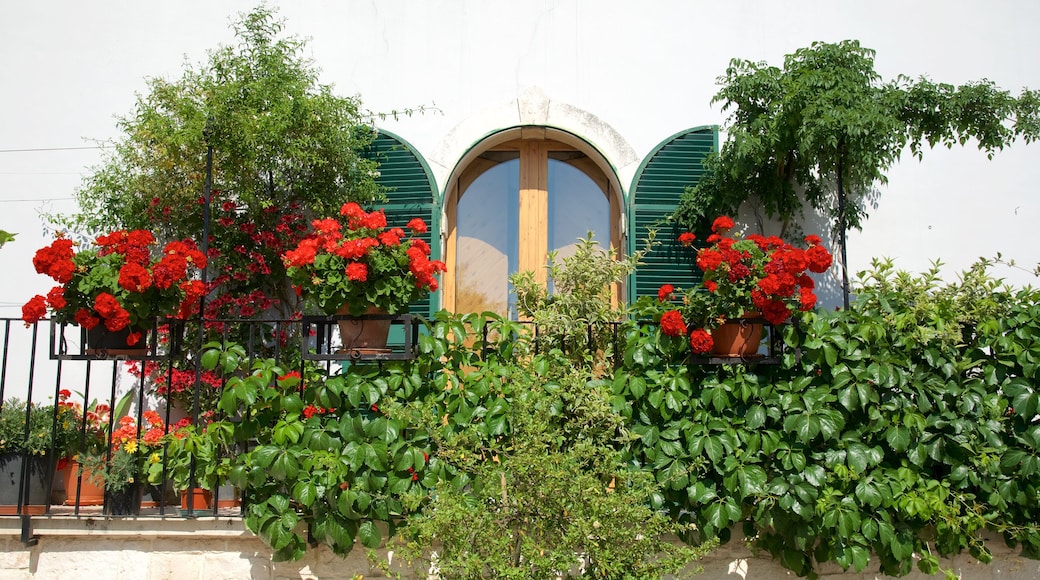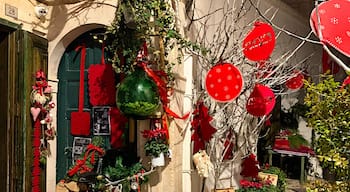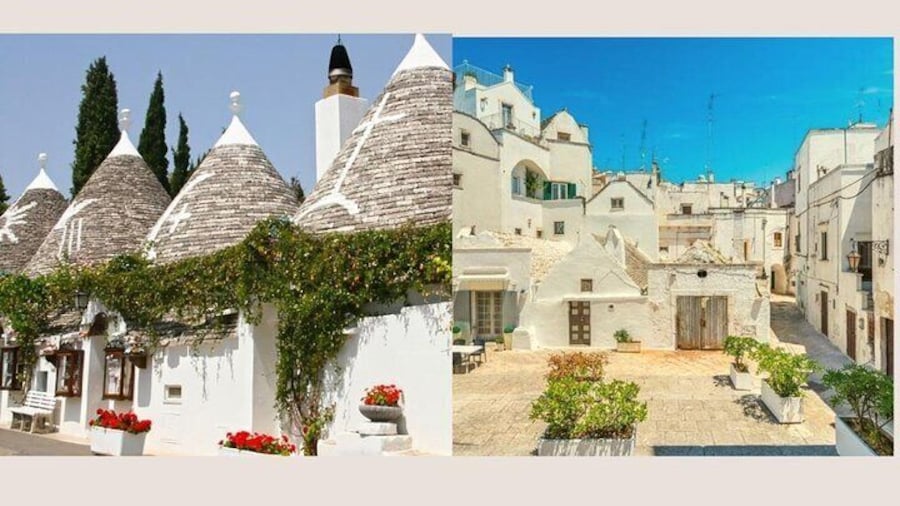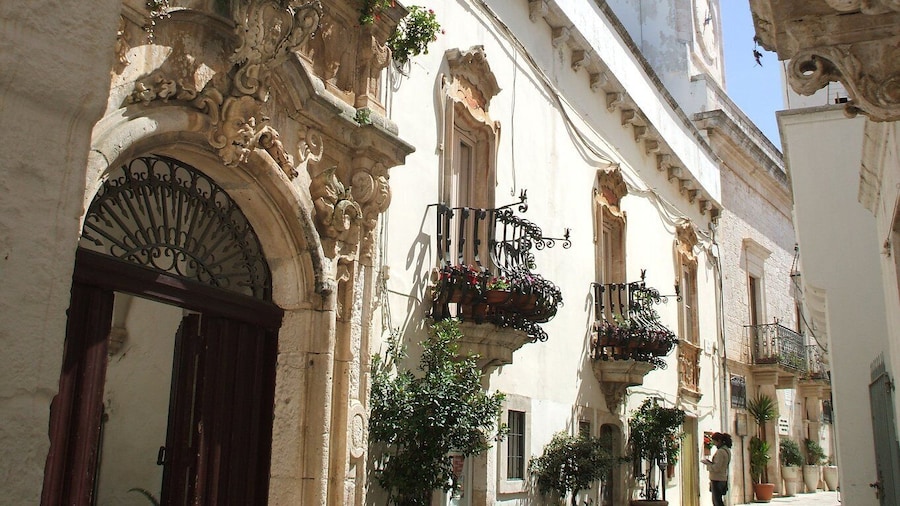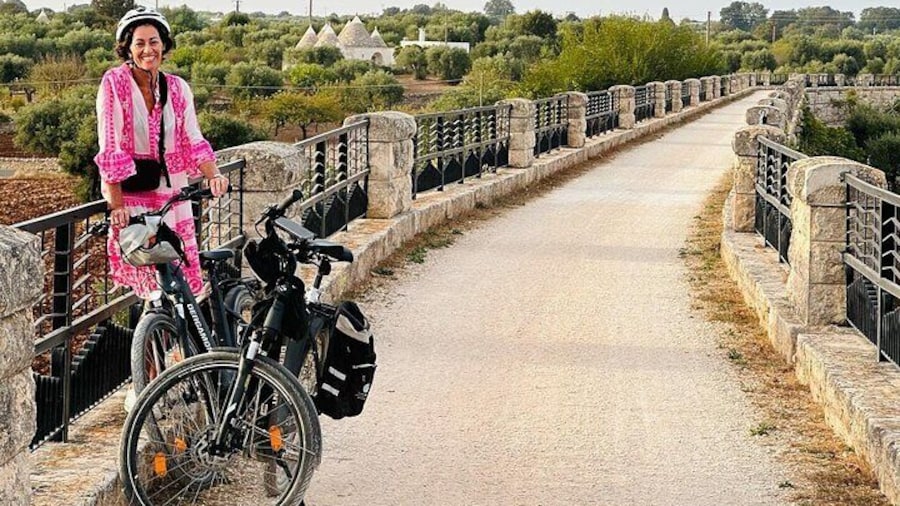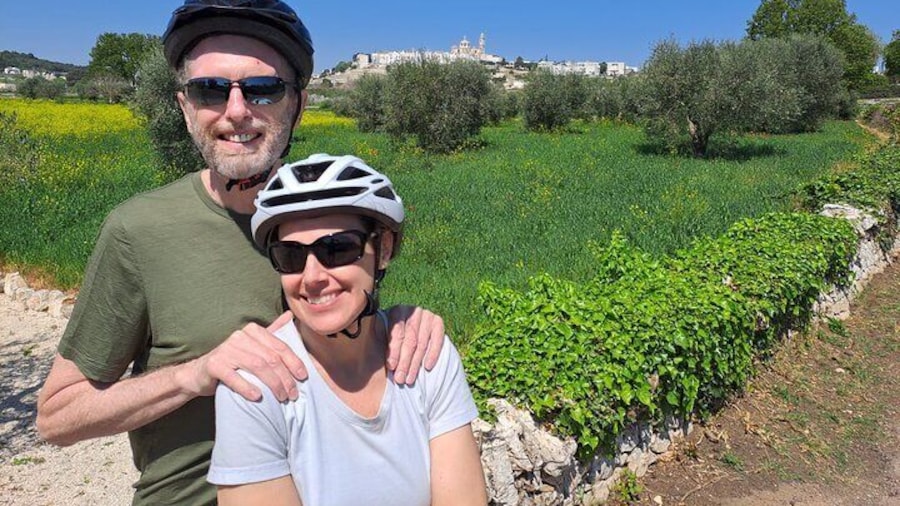Beautiful churches, gorgeous countryside and popular local wines await at this ancient Italian whitewashed town, situated on top of a hill.
The hilltop town of Locorotondo is an oasis of white amid a green landscape. Whitewashed buildings are surrounded by a countryside of fields and vineyards that produces the wines the area is known for. Taste some of these wines, explore the scenic surrounds and examine ancient religious art in the town’s churches.
Locorotondo owes its name to the circular shape of its old town center, which was built approximately 1,000 years ago. A stroll through its labyrinth of narrow lanes is a wonderful way to spend some time.
Pass rows of old houses tightly packed together. Admire their window boxes filled with pink and scarlet geraniums. Admire the friezes, Latin inscriptions and Baroque and Renaissance portals that decorate the façades of a number of the buildings.
Devote some time to discovering Locorotondo's ancient churches. The oldest church in the town is the Church of Madonna della Greca, which was first built between the 7th and 8th centuries. The current building is a 15th-century reconstruction. Visit the 19th-century Church of San Rocco and go to the small church of Spirito Santo, built in 1683. Among the other noteworthy old buildings is the Baroque Palazzo Morelli, built in 1819. Explore its rooms, which are spread across three stories.
Just below the town is its main wine producer, the Cantina del Locorotondo, a co-operative that started out in the 1930s. Enjoy a tasting session at the winery and purchase some bottles from the warehouse.
Drive out into the countryside and explore some of the other towns that dot the landscape of the Itria Valley. If you don't fancy the drive, local train services travel to some of these places, including Martina Franca and AlberobelloOpens in a new window.
Locorotondo’s history, scenery and wine heritage make it a popular vacation spot that’s well connected to the rest of Italy by road and rail. To reach Locorotondo, fly into the airports at BrindisiOpens in a new window and BariOpens in a new window, about 40 miles (64 kilometers) and 44 miles (70 kilometers) away, respectively.
